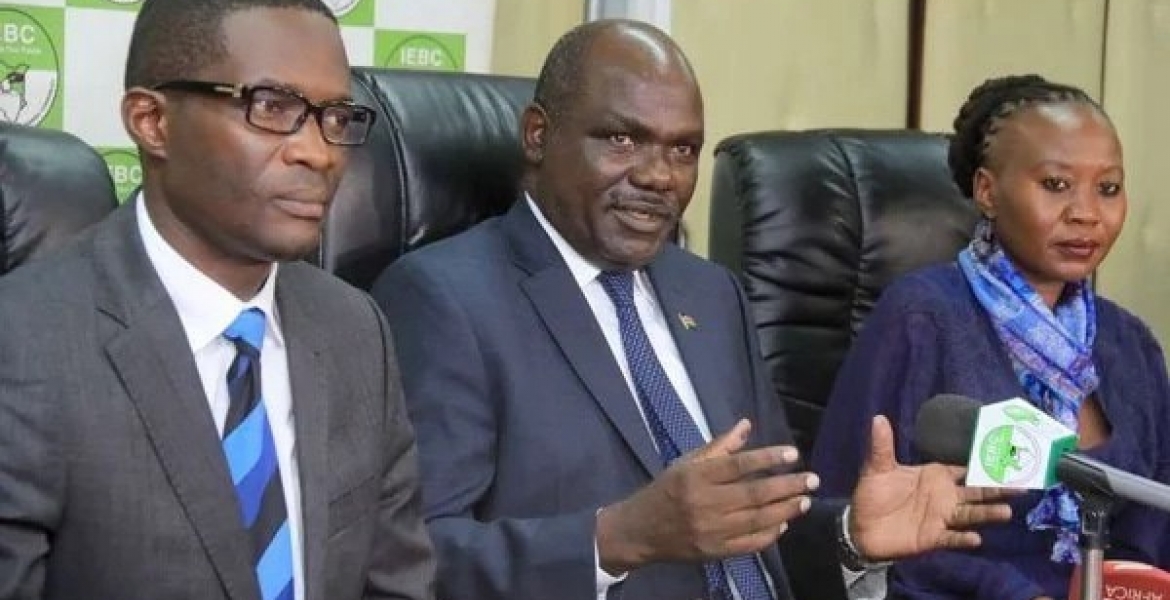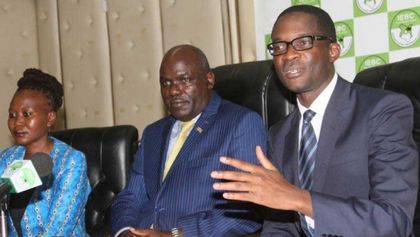
IEBC chairman and fellow embattled CEO, Ezra Chiloba.
The Kenya’s Electoral body faces numerous castigation from the government as well as the opposition in an equal manner.The Independent Electoral and Boundaries Commission (IEBC) has called for major changes on the conduct of the 2022 poll, suggesting that an amendment to the law was imminent.
According to a draft post-election evaluation report of the 2017 polls expected to be released on Tuesday, IEBC wants the presidential and parliamentary elections held at the same time, while the vote for governors and ward representatives be pushed to a different date.
The move comes at a time when the country is experiencing a peaceful coexistence between the ruling coalition and the Raila led opposition after the famed handshake on March 9 2018. The opposition had pressed for an overhaul reconstitution of the body saying it could not deliver credible elections.
The proposal seeks to have Kenyans vote on the second Tuesday of August of every fifth year.In a previous proposal, the IEBC had called for senators to be elected on the same day as governors.

According to the commission’s proposal, conducting elections in one day resulted in fatigue among electoral officials, which could result in them making errors.
IEBC also proposes a change in the Constitution to realign the term of county assemblies with that of the other elective seats for legal clarity.
This is after the County Assemblies Forum demanded that members be paid for the remainder of their term after the August 8, 2017 election.
